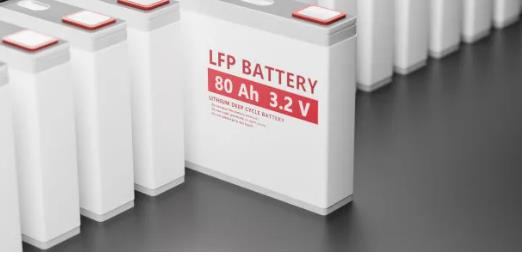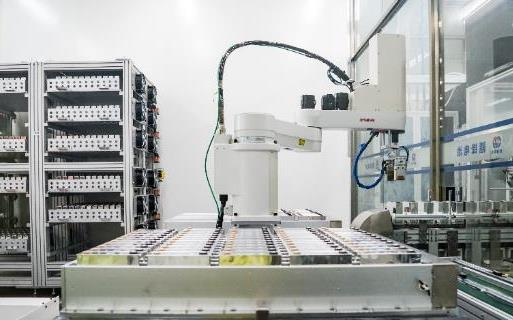The widespread adoption of power batteries has significantly advanced the development of the new energy vehicle sector, giving rise to a substantial market for the recycling of lithium batteries. The recent report, "High Demand for Power Batteries, Vast Prospects for Lithium Battery Recycling," published by Guosheng Securities, delves deep into the trends of power battery demand, lithium battery market, and the eco-friendly processes of lithium battery recycling, examining both the global and domestic landscapes. This comprehensive analysis emphasizes the importance of solar power batteries in the evolving energy landscape and incorporates key SEO terms such as "solar power battery," "solar backup battery," and "home backup battery."
High Demand for Power Batteries, Vast Prospects for Lithium Battery Recycling
As electric vehicles gain traction, the demand for power batteries experiences rapid growth. Guided by the "Dual Carbon" policy, China's new energy vehicle industry has entered a rapid development phase. According to Guosheng Securities' estimation, from 2019 to 2025, the total installed capacity of retired power batteries in China will increase from 0.2 GWh to 52.0 GWh, with a CAGR of 154.4% over six years. This signifies an imminent wave of power battery retirements, presenting enormous opportunities for the corresponding battery recycling market.
On a global scale, especially in Europe, North America, and the Asia-Pacific region, the rising demand for clean and renewable energy propels the widespread adoption of electric vehicles. Consequently, the international market experiences robust growth in demand for power batteries, including solar power batteries that play a pivotal role in sustainable energy solutions.
Global and Domestic Lithium Battery Recycling Processes: A Joint Pursuit of Resource Regeneration
The lithium battery recycling process encompasses two key stages: hierarchical utilization and resource regeneration. In China, the hierarchical utilization stage has matured into a process primarily dominated by "wet methods," with a focus on solar power batteries and their sustainable integration. This stage involves the preliminary assessment and classification of retired power batteries. Batteries that retain usability undergo hierarchical utilization, while those unsuitable or no longer meeting utilization conditions proceed to the resource regeneration stage.
Internationally, particularly in developed countries, heightened attention to resources and stringent environmental requirements drive the application of more advanced recycling technologies, including those tailored for solar power batteries. Some overseas companies employ sophisticated physical, chemical, and engineering techniques, achieving more efficient and environmentally friendly battery recycling processes.
Prospects and Competitive Landscape of Lithium Battery Recycling Markets: Awaiting Formation of Leading Enterprises with Solar Power Battery Emphasis
According to Guosheng Securities' calculations, as of 2022, the actual market size of China's power battery recycling is approximately 146 billion yuan, with an expected increase to 1,406 billion yuan by 2030. In comparison, the estimated market size for lithium battery recycling in 2022 is around 31.4 billion yuan, projected to reach 235.1 billion yuan by 2030. Despite the substantial market size, the current competitive landscape appears to be characterized by a "small, scattered, and chaotic" situation. Apart from the 88 enterprises listed on the Ministry of Industry and Information Technology's qualification "white list," there are numerous small and medium-sized enterprises. As of 2021, China had registered approximately 24,000 power battery recycling enterprises, and the formation of leading enterprises is still underway, with a specific emphasis on solar power batteries.
In the international market, some companies have achieved notable success in the lithium battery recycling sector, especially those prioritizing solar power battery recycling. They leverage efficient and eco-friendly technologies to effectively recycle various types of batteries, including solar backup batteries, contributing to global efforts for sustainable energy development.
Collaborative Models and Future Trends: Leveraging Channel Capabilities for Home Backup Batteries
Recognizing the centrality of channel recycling capabilities, both domestically and internationally, it is anticipated that future business models will be led by collaborations among battery manufacturers, automotive companies, and specialized recycling entities, with a specific focus on home backup batteries. Particularly in the realm of end-of-life vehicle recycling, where only 4% of the total scrap volume is currently reclaimed, enhancing channel recycling capabilities, especially through the advancement of automation in disassembly, will contribute to reducing labor and fixed costs, realizing economies of scale.
In summary, the lithium battery recycling market, with a specific emphasis on solar power batteries, holds vast prospects both globally and domestically, signifying a positive step towards resource regeneration and the advancement of circular economy principles. With ongoing technological advancements and evolving policy support, this field is poised for robust development. The combination of international experiences and domestic innovations will jointly propel the lithium battery recycling industry, including solar backup batteries and home backup batteries, towards a more sustainable and efficient future.
If you're interested in learning more about our solar energy storage offerings, we encourage you to explore our product line. We offer a range of panels and battery that are designed for various applications and budgets, so you're sure to find the right solution for your needs.
Website:www.fgreenpv.com
Email:Info@fgreenpv.com
WhatsApp:+86 17311228539
Post time: Dec-25-2023













